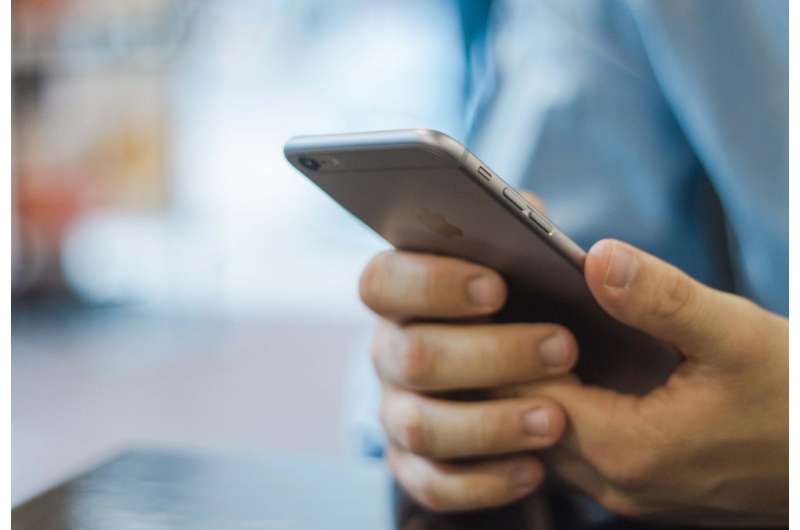Researchers give weight loss apps much needed scientific merit

Half of European adults are either overweight or obese. Many turn to self-help apps as a means to burn excess fat, but despite hundreds of digital tools available very few help maintain a slimmer waistline and few are based on tried and tested science.
Following a weight loss plan can be challenging as it often depends on more than just counting calories or doing exercise — it requires behavioural change.
'We see a lot of apps that would claim to help you lose weight, but none maintain weight loss, and few of them are evidence-based,' said Professor Berit Heitmann, at Frederiksberg Hospital in Denmark.
There is also a dangerous trend where the apps that are the least evidence-based often have the most attractive interface and are therefore downloaded more.
'While between 90–95 % of people who are overweight or obese can successfully lose weight, only 5–10 % can keep it off in the long run,' said Prof. Heitmann, who is also in charge of the EU-funded project NoHoW which is conducting research into tried and tested long-term weight loss techniques.
The project will design an app that will empower dieters to keep the kilos off through scientific-based approaches. NoHoW will equip 1 600 volunteers with a wireless weighing scale along with movement and heart monitors. Rather than tell people what they should eat, volunteers will be given techniques to help them reach goals, regulate emotion and manage stress, such as providing tailored advice on how to be more active or get better sleep.
In fact, it seems we all carry an ancient biological stamp that leaves us vulnerable to weight gain during times of difficulty or stress.
'For our ancestors it was beneficial to gain weight and conserve energy when food was scarce. This response to stress is probably still with us today,' explained Prof. Heitmann. 'It is not just that stress undercuts our good intentions, but it may better equip the body to conserve energy.'
Targeting when dieters enter these moments of stress may be crucial to help them overcome this evolutionary trait.
'We plan to help people manage stress and emotional instability. This will assist them in helping themselves,' said Prof. Heitmann.
Self-management of weight gain can help offset the huge economic burden of many health risks linked to obesity such as diabetes, which affects 60 million Europeans.
Diabetes
Dr Meena Daivadanam, public health scientist at the Karolinska Institute in Sweden, said that 'health care systems all over the world are struggling with diabetes.' Diabetes is a disease people have to live with day in, day out once they are diagnosed, and health systems are not equipped to deal with that, she adds.
Dr Daivadanam is the coordinator of the EU-funded SMART2D project, which has a people-centred approach that moves care beyond the clinic to the community. Health systems are usually built to cope with more sudden diseases or provide specialist care, rather than a lifestyle-related health problem, such as Type 2 diabetes, which requires long-term and often non-specialised care, she said.
The SMART2D project uses a social innovation model that brings patients and their families together in community-supported peer groups to help them self-manage their diabetes. By setting the study in three different countries — a rural, low-income area in Uganda, a middle-income town in South Africa, and vulnerable immigrant populations in Sweden — it will be possible to develop evidence-based guidelines relevant to different communities.
'Members will have the chance to explore their needs and their local environment on their own terms, such as where to find healthy food outlets that are not so expensive,' said Dr Daivadanma.
Professor Stefan Peterson, health researcher at Uppsala University also in Sweden, who is a scientific advisor to the project, says peer support is a more supportive and empowering route to healthier lifestyle change, and reduces the burden on a health care system's personnel and resources.
Technology can lend a hand in self-management too, as shown in a new project putting artificial intelligence (AI) to work to help those with so-called Type 1 diabetes.
These days, Type 1 diabetics count carbs first and then inject insulin according to what they've eaten. They do this because they lack the enzymes to maintain healthy blood sugar levels after they eat.
Dr Clare Martin, computer scientist at Oxford Brookes University in the UK, explained that 'only a small minority of people keep their blood sugar within the target range' because 'it is hard to do' which often leaves diabetics feeling frustrated.
To relieve this situation, Dr Martin is coordinating an EU-funded project called PEPPER, which aims to empower diabetics by collecting real-time data of their condition and turning into personalised decision support.
'The idea is to use wearable technology, so a fitness band and continuous glucose monitor, to gather information on the person automatically,' said Dr Martin.
Wearers can add info such as how many carbs they consume, alcohol consumption and exercise intensity. They then get advice on their smartphone or pump handset telling them how much insulin to take.
'The artificial intelligence works a bit like human memory. It builds up a database of past information and evaluates each dose to see whether it was a good or bad dose, and so discovers what works best for the individual,' said Dr Martin.
The glucose monitor is around the size of a USB stick, and the insulin pump is about the size of a Tic Tac box. Studies are just beginning on a small number of patients, with a particular focus on the safety system. Dr Martin is planning for a full clinical trial in 2018 before their technology can be scaled up.
'If patients are happy with the device, we hope to move towards commercialisation,' she said.


















